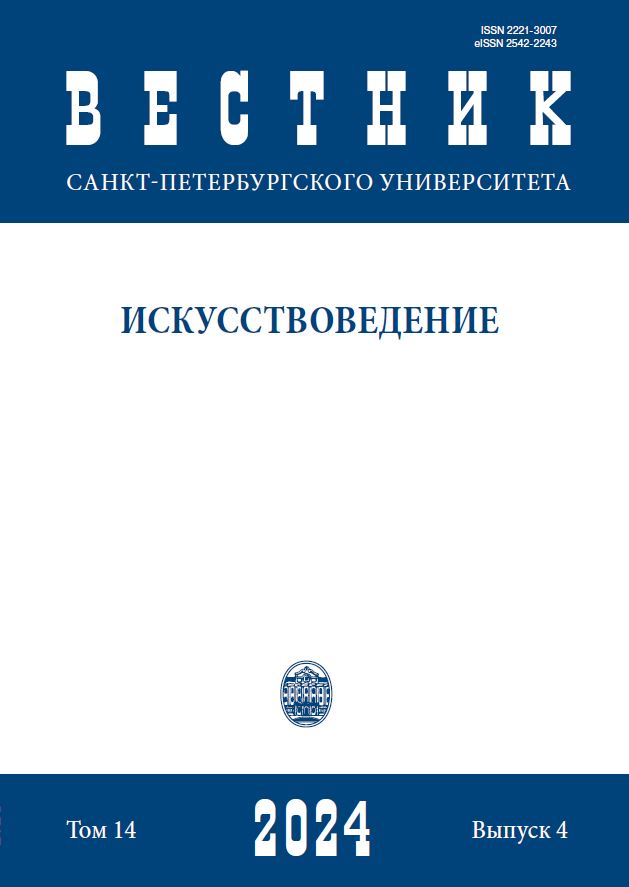"Ask Ada": about polymorphism of multimedia compositions
DOI:
https://doi.org/10.21638/spbu15.2024.402Abstract
In the work of the modern Greek composer Yannis Kyriakides, the work "Ask Ada", written for a soloist, an ensemble of instrumentalists, a vocoder and synchronized with a video installation, occupies a special place. The plot centers on a female mathematician, the author of the first computer code in history, which she wrote for the difference machine of the famous inventor Charles Babbage more than a hundred years before the first programmable devices appeared. Ada's personality, which has become the object of close attention in the world of research on the history of computer technology and the development of artificial intelligence, has become the center of attraction for the composer, who devoted his work to the study of the symbiosis of acoustic and electronic music, multimedia compositions. The problems of genre definition, determining the role and place of the little–studied methodology of contact with the listener, and species diversity have become elements of a common system of internal contradictions of modern works of art that combine auditory and visual spaces. The principles of plot construction in Kyriakides' composition become an unexpected solution: an explicit numbered structure, strict compliance with the timecode in the score is combined with a non-linear unfolding of the main storylines that occurs in discrepancy with the chronological order. Their sequence in the play is quite conditional, appearing fragmentary, fragmentary, like pixels in a digital image, gradually combining with related plot motifs, such links are subsequently formed into independent, full-fledged semantic fields. Developing the idea of his own way of communicating with the listener, forming the basis for generating meanings, Yannis Kyriakides experiences a variety of techniques, one of which is polymorphism. Asynchronous unfolding of the plot becomes the basis of the chronotope of the composition. The free, bordering on chaotic, interweaving of the main channels of the plot eventually develops into a consolidated stream, the unifying means for which are musical artistic and expressive means and techniques of videography.
Keywords:
Yannis Kyriakides, Ada Lovelace, multimedia composition, electronic music, artificial intelligence, synthesis of arts, polymorphism, “Ask Ada”
Downloads
References
Downloads
Published
How to Cite
Issue
Section
License
Articles of "Vestnik of Saint Petersburg University. Arts" are open access distributed under the terms of the License Agreement with Saint Petersburg State University, which permits to the authors unrestricted distribution and self-archiving free of charge.







